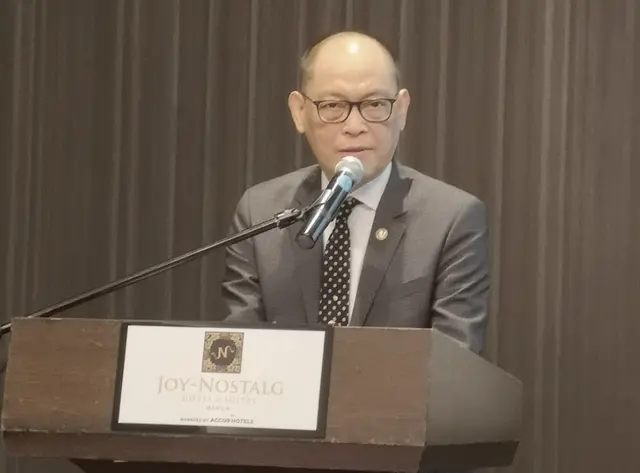By APD writer Melo M. Acuña
Experts in financial intelligence and senior representatives from regulatory, national security, law enforcement, industry and academia from Asia and the world began their summit meeting today in Manila.
In a statement released by the Philippines’ Anti-Money Laundering Council, Indonesia’s financial intelligence unit and the Australian government, the Summit continues to expand it scope beyond countering terrorist financing, and “will consider ways to address significant regional threats” which include the abuse of new financial technologies, corruption in the region and victim-based crimes which involve human trafficking, wildlife trafficking and child sex exploitation.
The conference is hosted by the Philippines’ Anti-Money Laundering Council (AMLC) with its co-founders, the Indonesian financial intelligence unit (PPATK) and Australia’s financial intelligence agency (AUSTRAC).
The gathering hopes to identify and share counter-terrorism financing strategies between countries in the region, address regional high-risk money laundering threats, provide operational guidance to counterparts and private sector on digital currencies and virtual assets as well as present the outcomes from the pilot of secure information sharing platform to allow real-time intelligence sharing and collaboration between regional financial intelligence bodies.
“Fighting terrorism means teamwork among local and international stakeholders,” said AMLC Chairman and Bangko Sentral ng Pilipinas Governor Benjamin E. Diokno. He added through sharing and potential collaboration across all concerned sectors that countries synergize efforts and ultimately “rethink our strategies in beating terrorists and their financiers at their own game.”
Chairman Diokno added the CTF Summit’s discourse has gone beyond its name to include money laundering and other offenses as the terrain of financial crime grows.
Meanwhile AUSTRAC CEO Nicole Rose PSM said the CTF summit has evolved into a globally recognized example of multilateral cooperation focused on terrorist financing and serious transnational crimes.
“Terrorist and organized crime groups are increasingly sophisticated international organizations and it is essential that we unite as a region to combat these threats together. The CTF Summit continues to facilitate important regional initiatives and cooperation and trust between financial intelligence units in the region has never been stronger,” Ms. Rose explained.
The head of the PPATK, Kiagus Ahmad Badaruddin underscored the CTF Summit’s role as a forum that facilitates new ideas and firm commitments to collaboratively address money laundering and terrorist financing in the region.
“Entering its fifth year, the CTF Summit increasingly demonstrates its crucial role in formulating joint actions and commitments to combat other transnational organized crimes such as corruption, human trafficking, and child sex exploitation,” Mr. Badaruddin said.
Indonesia and Malaysia led a team that included representatives from Australia, Brunei Darussalam, New Zealand, Philippines and Singapore in conducting research into transnational laundering of the proceeds of corruption in the region.
Among the findings were politically exposed persons in ASEAN with influence in their countries over the natural resources sector, were found to have the highest vulnerability to corruption either by embezzlement or bribery, the most influential politically exposed persons have access to complex and sophisticated money laundering schemes, designed to hide the origins of the funds and involve the movement of funds through multiple jurisdictions within and outside the ASEAN region.
It was also found that schemes such as these are provided by professional facilitators, using banks that are foreign to the source of the initial corrupt proceeds and that the proceeds of corruption from countries outside ASEAN + region were also considered in this research. The threat of these funds being laundered within the ASEAN region is considered high.
The paper proposed a range of practical measures that regional financial intelligence units, anti-corruption agencies and law enforcement can do individually and collectively to reduce the significant social and economic impacts og high-value, transnational corruption in the ASEAN region.
The CTF Summit will also consider the emergence of new financial technologies and the money laundering and terrorist threats they pose.
They also noted the different regulatory standards in the region regarding virtual currencies create gaps that can be exploited by criminals. This threat has been underscored in a study paper led by Indonesia and contributed to by ASEAN, Australia and New Zealand financial intelligence units. The same paper identifies some specific risks in new financial technology and provides operations guidance and recommendations to regional authorities and those in the private sector are seeking to address the identified risks.
This year’s CTF Summit has “Together United-Strengthening Our Region” as theme. The outcomes will be declared in the Manila Communique at the Summit’s conclusioin on Thursday, November 14.
(ASIA PACIFIC DAILY)
 简体中文
简体中文

